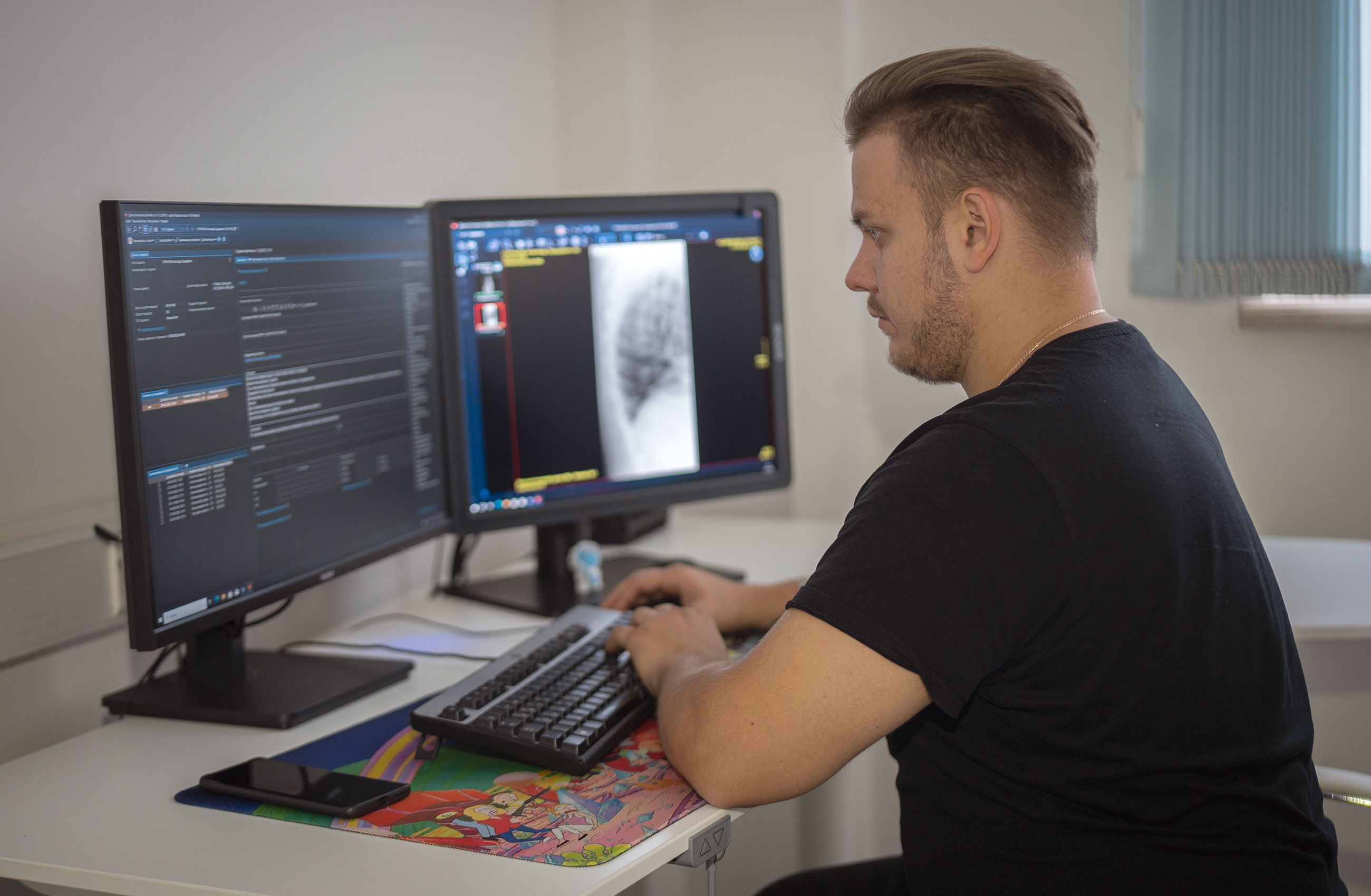The first complex artificial intelligence service for searching for abdominal diseases began operating in Moscow. The algorithm is able to immediately find signs of 6 pathologies in one computed tomography image, for 3 of which Moscow healthcare doctors have not yet had the opportunity to use artificial intelligence: urolithiasis, liver formations and kidney formations. This was stated at the Russian Diagnostic Summit by the Deputy Mayor of Moscow for Social Development Anastasia Rakova.
“In an experiment to introduce computer vision technologies into healthcare, a comprehensive artificial intelligence service began operating, which finds signs of 6 diseases in computed tomography images of the abdominal organs. The complex included 3 new areas: urolithiasis, liver formations, kidney formations and 3 already existing ones: adrenal formations, compression fracture of vertebral bodies, and abdominal aortic aneurysm. All these diseases are very serious; they affect not only health but also human life.
In total, 5 complex artificial intelligence services are already working in the experiment. The new service is the first to search for diseases of the abdominal cavity; the rest work to identify pathologies of the chest organs. Among them, one of the services is able to detect signs of ten pathologies on a computed tomogram: adrenal gland formations, lung cancer, pulmonary hypertension, pneumonia, osteoporosis and wedge-shaped deformation of the vertebral bodies, thoracic aortic aneurysm, hydrothorax, pulmonary emphysema, coronary heart disease according to the degree of calcification of the coronary arteries and the volume of paracardial fat. Two complex services identify signs of seven pathologies and 1 complex service – 8
“The first step in opening an experimental area is to determine its relevance in the public health care system. We analyze the number of studies carried out per year in medical organizations of the Department of Healthcare, determine the most frequently performed of them and the most frequently detected pathologies. Next, we announce on the website https://mosmed.ai/ the areas in which we are ready to accept intellectual developments for participation in the experiment, and publish diagnostic and functional requirements for them. Developers create solutions, which we then test and, in case of successful test results, the service is allowed to work with real studies conducted in Moscow medical organizations. This way, only proven artificial intelligence services in popular areas become available to doctors,” Yuri Vasilev, Senior Consultant for Radiology of Moscow, CEO of the Center for Diagnostics and Telemedicine of the Moscow Department of Health, said in more detail.
Neural networks are used to process images of imaging tests obtained during fluorography, mammography, radiography, computed tomography and magnetic resonance imaging. Today, the project includes more than 50 artificial intelligence-based services in 26 modalities of research that help radiologists recognize various diseases.
The algorithms work within the framework of the Experiment for the implementation of computer vision technologies in healthcare - a project of the Social Development Complex of the Moscow City Hall on the basis of the Center for Diagnostics and Telemedicine with the support of the Department of Information Technologies.

 It is important that when working with a comprehensive service, the doctor can pay attention even to those pathologies that are not the subject of the examination. Such incidental identification of dangerous abnormalities can save the patient’s life,” explained Anastasia Rakova.
It is important that when working with a comprehensive service, the doctor can pay attention even to those pathologies that are not the subject of the examination. Such incidental identification of dangerous abnormalities can save the patient’s life,” explained Anastasia Rakova.










.jpeg)

.jpeg)
.jpeg)
.jpeg)

.jpeg)
.jpeg)
.jpeg)
_(1).jpeg)

_(1)_(1)_(1).jpeg)
.jpeg)
.jpeg)
.jpeg)






